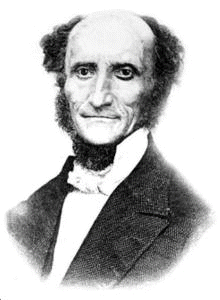A favorite statement on this blog is that we are all in this together and we try and show the connections we have as “church” as a part of the body of Christ and a part of one another. As we started to develop a human care/mercy emphasis for the Minnesota North and North Dakota Districts we felt that one of our problems or issues was that many people understand “church” to be their local congregation and even more troubling, many people view the “church” as the building in their particular area. There is evidence that the reason there is no mass exodus out of a certain Church body over a certain practice or theological decision is that most people have no connection to the “wider church”. Their church is the local congregation and they have very little concept of the interconnectedness of the Body of Christ.
Matt Harrison is a great theologian. He is also a student of language and history. Rev. Harrison has almost completed a revision of one of the foundational documents of our church body. When I studied it the title was “Kirche und Amt” which was translated to “Church and Ministry”. Rev Harrison translates it as “Church and Office”. The author was CFW Walther considered by most of us to be the founding father of the Lutheran Church Missouri Synod.
So far so good but what is the little thing that adds up to a big thing? It was a tranlation from the German that generations of non German speaking or reading students read. Here is President Harrison’s explanation.
The rendering of Gemeine as “community,” Gemeinde as “congregation” and “kirche” as church, may appear pedantic, and indeed is. All three terms often are simply used for congregation or church (both local and trans-local). On the one hand, Gemeinde is simply an updated version of the older more common word used by Luther (Gemeine). So the St. Louis edition of Luther often updates the German from “Gemeine” to “Gemeinde.” Luther often uses the term for the Greek “ecclesia.” “Tell it to the Gemeine.” But this matter becomes significant when in the American context, with self-governing and largely autonomous congregations, the understanding of what it means to be church is pulled very strongly toward the local congregation. We see this in Walther’s rendering and application of texts, and especially in J.T. Mueller’s rendering of “kirche” as “congregation.” Gemeine (updated as Gemeinde) often means something broader than a single congregation in Luther and the Lutheran confessions, such as the several parishes of a city (not unlike C.F.W. Walther’s own Gesamtgemeinde in St. Louis, consisting of four congregations over which Walther was Pfarrherr, or senior pastor. Gemeine may mean an entire regional church, church of an entire state or territory (i.e. the Church of Saxony). But in Missourian tradition “Gemeinde” became synonymous with “congregation.” I’ve included the original word in brackets where it occurs so the reader may carefully consider the word in its context.
What does it mean when the understanding of generations of Pastors and teachers as what it means to be “church” is pulled very strongly toward the local congregation? It is a little thing but we see the results all around us. How many of us when talking about ‘the District’ use the word ‘they’? We are the District. Presidents Fondow and Baneck are not “district” all the congregations of the geographical area called District are District. Synod is not “them”, it is “us”. Congregations and Pastors are members of Synod, but more importantly they are all in this together. They and their members in turn are “Church”.
Walther wrote that the Keys are given to the Church. That means all of us. So where the original states “the keys have been given to the entire church [ganzen kirchen],” the translation says “the keys have been given to the entire congregation.” How many times have we heard of congregations that call a District President in to help with some problem but he comes away doing nothing because the “entire congregation” may not agree with what needs to be done.
We see the results in circuits which view themselves as amalgamations of independant “churches” that have no connection with one another unless there is a vacancy in the office of the ministry somewhere. We see the misunderstanding in the drawing of “parish boundaries”. I have it on good authority that there have actually been confrontations among Pastors in which one Pastor told another that he was not allowed to come to the hospital and visit “his members”. If the local congregation is the “church” then the Pastor of that church can claim that they are ‘his members”. I guess it would be better to think of it as Christ’s Church, His body, and we are all members of it, and therefore as Paul says, “members of one another”.
We see the results in the way we “fund the mission”. If a congregation is convinced that they are the “Church” then obviously they also become the “mission”. All of this is “body of Christ” stuff and we need to get a handle on it soon. The days are getting evil and there is much to be done. Disagreements over what is the church and what is ministry and who has authority and what are our rights and is not only counterproductive but blasphemous. I haven’t heard for a long time a congregation in crisis ask “what are our duties as members of the body of Christ?” But the do ask, “what are our rights?”
Now you are the body of Christ and individually members of it – 1 Corinthians 12:27.


